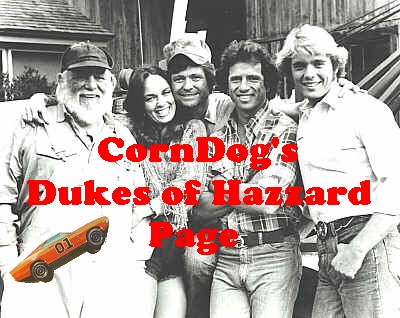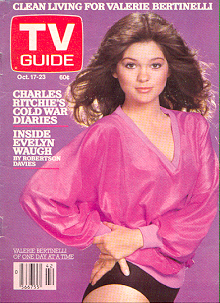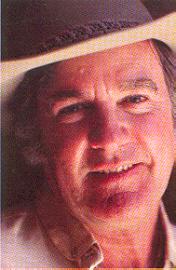
GO BACK HOME



Another Day Another Holler
James Best is a patsy on The Dukes of Hazzard - but an obstacle on the set
By Ellen T. Shaw
James Best, who plays ornery Sheriff Rosco P. Coltrane in The Dukes of Hazzard (CBS,CTV), is a caring fellow who hugs and kisses and gives people he's font of pet names. He's sensitive, too. An artist, composer, playwright and lyricist. His paintings sell. His plays don't. But one doesn't get to star status in Hollywood by caress alone. Underneath his soft, sweet manner, Best can be meaner than a junkyard dog.
In November 1980, Best walked off the set to protest the miserable way he thought he was being treated. In the scripts, Rosco is often the butt of a certain malicious prankishness practised by the Duke brothers; ol' Best winds up in cars filled with water, muddy pits and garbage cans. He is the victim of other assorted indignities. All part of the plot. He doesn't mind. What he did mind was being hosed down - after he'd climbed out of innumerable mudholes - and literally left to dry off. "We get thrown a towel," he says. That's all. So Best demanded a motor-home dressing room. He got one for a single day. When it was taken away, he went fihing for about eight weeks. Overtureswere made, and he came back. Parked on the set was a cosy motor home. His.
Paul Picard, the executive producer of Dukes, puts it slightly differently: "All the actors on the show got the same offer for either X amount of dollars or a motor home. Jimmy picked the motor home."
But Best says, "They only offered us that option after I stuck my neck out."
Nor is Best the delight of the show's writers. "Sorrell [Booke, Boss Hogg] and I rewrite 90 percent of our lines," he says. "We've made chicken poo-poo many times. Everybody is tired of doing the same thing over and over again. Car chases. Two heavies coming to town to rob the bank. Boss Hogg framing the boys. The cast doesn't even read the script. I'm afraid it's going to stay the same format till it dies, and I don't want to ride a dying horse."
A chronic complainer, some might think. Why grouse when you've got gold flowing into your multiple banks accounts and, more than that, adoration and lust from fans large and small? Could Best be a whiner?
Well, says Sorrell Booke, his best pal on the series, "Jim tends not to be conciliatory. If he's discontented, he'll put it into words. He does not hide anything out of fear." So Best can be a pain in the gluteus maximus and a charming, wonderful man? "He's both," says Booke.
 Best was born into a Kentucky coal miner's family. There were five brothers and sisters ahead of him and another brother after him. Then his mother died, and Best's older sister tried to keep the family together. "But my father was a drunk with blacklung disease," Best says matter-of-factly. "So my sister took me to an orphanage." One day Best was standing inside the orphanage fence (he might have been 5; he's not sure) when a woman on her 30's came along. She thought she might like to adopt a baby. "Please take me home," said Best. the woman did just that. Her husband was quite surprised. "Then there was lots of hugging," says Best, and the affection his adoptive parents have bestowed on him ever since goes a long way toward explaining the gentle side of Best's nature. You see it on the set when kids come up to him, their eyes bugged out with pleasure: "Whooooeeeee, Rosco!" He picks them up and lets their mothers take a million snapshots.
Best was born into a Kentucky coal miner's family. There were five brothers and sisters ahead of him and another brother after him. Then his mother died, and Best's older sister tried to keep the family together. "But my father was a drunk with blacklung disease," Best says matter-of-factly. "So my sister took me to an orphanage." One day Best was standing inside the orphanage fence (he might have been 5; he's not sure) when a woman on her 30's came along. She thought she might like to adopt a baby. "Please take me home," said Best. the woman did just that. Her husband was quite surprised. "Then there was lots of hugging," says Best, and the affection his adoptive parents have bestowed on him ever since goes a long way toward explaining the gentle side of Best's nature. You see it on the set when kids come up to him, their eyes bugged out with pleasure: "Whooooeeeee, Rosco!" He picks them up and lets their mothers take a million snapshots.
And while he vainly wishes the producers would change Rosco's giggle and tone down the silly country dumbness, he has fond feelings for the essence of the part he plays. "Rosco's given me a chance to be accepted by the world," he says, a bit sententiously.
Best is a product of the Hollywood studios' contract-player system. Appearing in either summer or winter stok - he doesn't remember exactly - possibly in Monticello, New Jersey, Best was seen by a Univeral Studios talent scout. Since he had been trifled with before - had been offered roles that didn't pan out - he showed up in Bob Goldstein's office with a stubbly chin and a slightly hostile attitude. Goldstein asked Best if he'd like to go to Hollywood. First Best said, "Don't lie to me, mister." Then, reassureed it was an honest proposal, Best said yes - and went.
At first, he did the usual walk-ons. He and Tony Curtis started out together in "Winchester 73," a Jimmy Stewart movie. He went on to appear in more than 80 feature films and some 600 TV shows.
In one of his periodic revulsions against Hollywood, Best left in 1967 - while his career was hot - and went to Jackson, Mississippi, where he taught acting classes at the University of Mississippi and acted in and directed the town's little theatre.
Best stayed there unitl 1975. He wanted his two little girls to experience the virtues he grew up with: "to have gores. To have a mud fight in a crick." Now his daughters, age 19 and 20, are back in Hollywood, one of them an actress. Best's marriage ended in divorce five years ago. He dates what, in his courtly Southern gentleman's manner, he calls "sweet, lovely ladies."
It's been five years now since Best returned to Hollywood. But clearly he is itching to leave. He'll probably head South, "where you find a man's word is honorable." He has an idea for a theatre in the Florida plains, where you'd leave your car in a lot and be shuttled by hay wagon to the theatre - a barn.
Sounds like a great idea for a movie: Disillusioned actor leaves Hollywood for his own theatre in the wilderness. Meets beautiful backwoods girl who restores his faith in life. Writes a play about what he's found. Hollywood options it. And James Best is hired to...